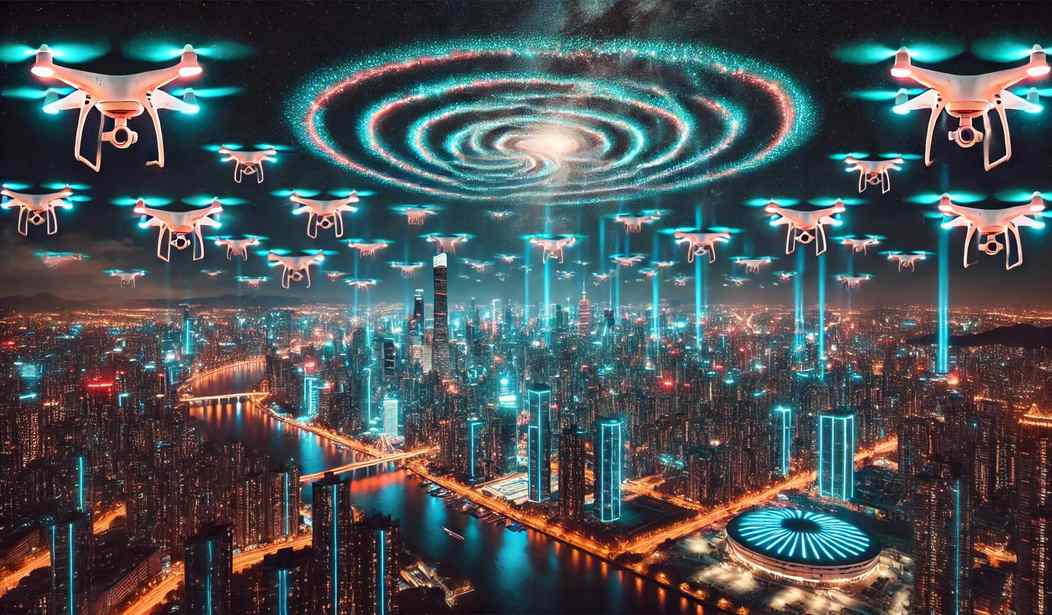In Tampa Bay, there’s a British gentleman named Peter J. He was formerly of Her Majesty’s Royal Navy and later served as a representative to NATO. Funny, charming guy. He told great stories about his time with the royal family — including how the Queen admonished her staff to stop watering down her drinks: “You’re drowning the gin!”
He liked me because I had two qualities he appreciated. First, I’m reasonably bright and well-educated, and second (much more importantly) he knew he was far brighter and way better educated. So he’d pick a topic at random — “Scott, my dear boy, tell me what you know about the Ottoman Empire?” — and then he’d figure out what I didn’t know, and bust my chops about it for a good hour or two.
(For the record, the Ottoman Empire was a pretty lousy empire. That’s why its name is synonymous with undersized furniture we put our feet on. But I digress.)
About ten years ago, he was selling military drones and wanted to use the property of a client for a demonstration. It sounded impressive: He said the drones could fly out of the back of a pickup truck, were whisper-quiet, and invisible to the naked eye at a relatively low level. It also had “emergency features” to either recall the drone if damaged or self-destruct.
I asked about its surveillance capabilities and/or offensive firepower, but Peter declined to divulge.
But then I had a Eureka moment: Why not create drones that look like birds? That way they could fly in squads of 10 or 12 without alerting the enemy. The “lead” bird could be equipped with an ultra-powerful camera; all the other “birds” could be armed to the gills with missiles! Isn’t that a great idea, Peter?
He looked at me like I botched a fact about the Ottoman Empire.
“Scott! There are only a few things that both fly and could be suitable camouflage! Don’t you think we’ve already thought of that?”
So I sighed and apologized for being a nitwit.
“We’ve been working on drone technology for a long time,” he continued tsk-tsking. “You really have no idea how advanced it is!”
With the recent sightings of drones around New York, New Jersey, and nearby military bases, I’ve been rethinking Peter’s comments: We really don’t know how advanced any of it is.
But we know that the technology is rapidly improving. And we know that both sides are using it in the Russia-Ukraine war: Russia has deployed over 200 at a time. Ukraine has sent over 80.
If necessity is the mother’s milk of invention, then it’s no wonder that numerous technological breakthroughs have occurred during times of war. And Ukraine, it seems, has mastered the art of designing and producing cheap, effective drones in large numbers.
Presumably, these drones wouldn’t be overwhelmingly difficult to reverse engineer. That’s the benefit, after all, of a low-cost design.
Right now, Western nations are funding Ukraine’s military budget, earmarking billions of dollars each month. Presumably, some drone manufacturers are getting rich.
And presumably, not all drone manufacturers are ethical.
It doesn’t seem like this is the kind of technology you can keep a lid on. Cheap, effective, low-risk military tools tend to be popular on the open market.
We really don’t know what’s going on with the drone sightings along our Eastern seaboard. Some politicians are looking side-eyed at Iran, others are saying that China’s drone technology is ahead of ours, and the possibility remains that they could all be part of a secret U.S. aviation project.
It could be a lot of things.
But when most of the possibilities are dangerous to our national security, there’s a problem.
A few months before these drone sightings began, MIT Technology Review released a policy paper, “Why China’s dominance in commercial drones has become a global security matter.” Lawmakers have pursued various remedies, but China is a closed society; there will always be an element of the unknown. And not to get all Rumsfeldian, but of all the “known unknowns” and “unknown unknowns,” four key questions remain:
- If China is willing to sail a big balloon over our military bases, why wouldn’t it be willing to use drones?
- If drone technology is scalable and replicable en masse in Ukraine and Russia, why couldn’t that technology be exported here?
- Is it entirely coincidental that there’s been a dramatic increase in drone activity during the “lame duck” period before Trump takes over and there’ll be consequences once again for anti-American actions? (I tell ya, if Joe Biden were still alive, this wouldn’t be happening!)
- And furthermore, since our intelligence services have gotten every major prediction wrong over the past 30 years — from missing the collapse of the USSR to guaranteeing that WMDs were in Iraq to misjudging the security of Americans during our disastrous Afghan withdrawal — why the hell should we be confident that they’ll get this one right?
We better hope it’s E.T. in the sky because the other possibilities are awfully unsettling.










Join the conversation as a VIP Member